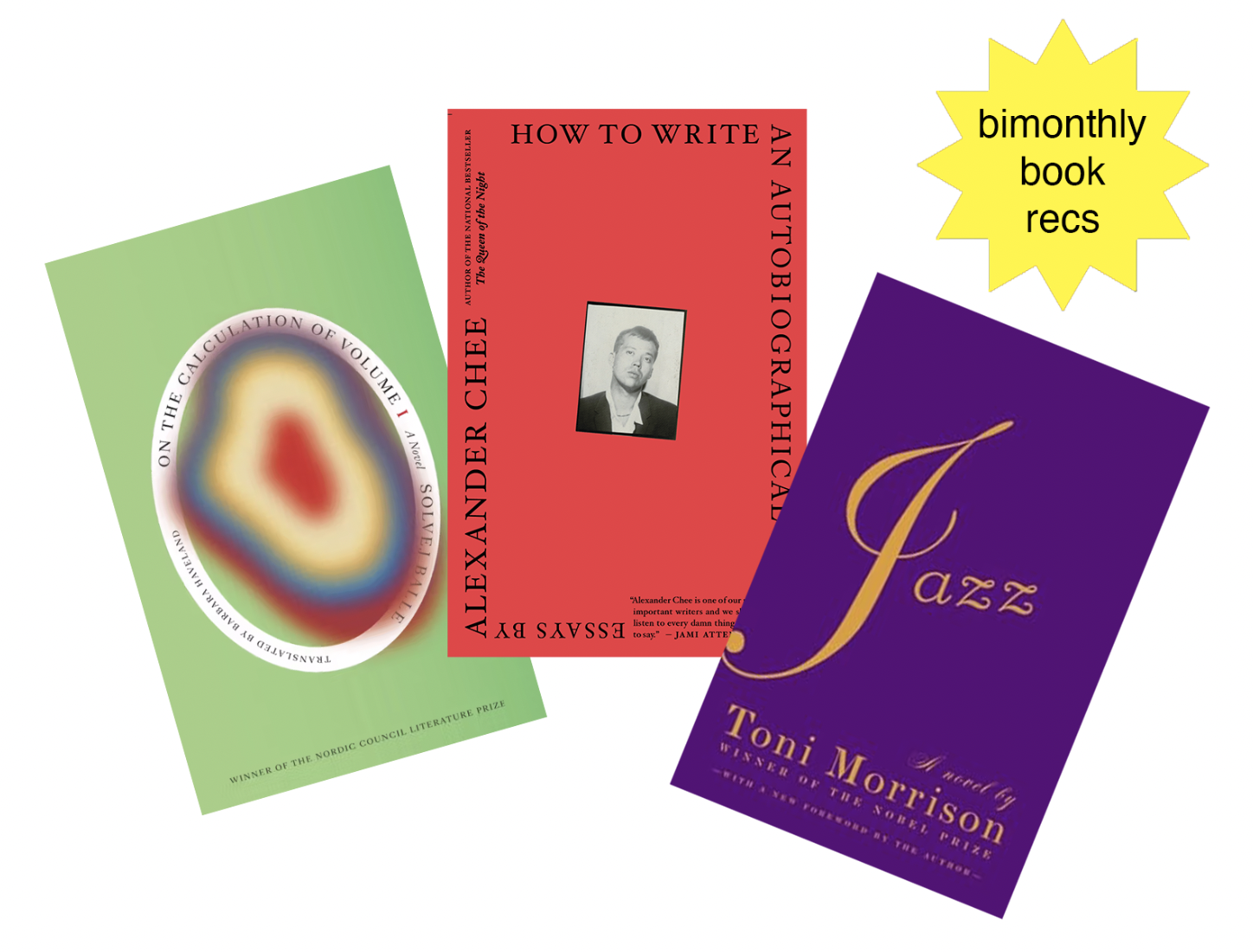
Letters of Recommendation #2
Bimonthly book suggestions.
By AMelia Olsen
1.6.2025
Happy January, friends! I hope you all had a sweet and restful holiday season. Here are some recs for you and your 2025 literary pursuits <3 I hope you sink in and slow down with them.
On the Calculation of Volume (I)
Solvej Balle tr. Barbara J. Haveland
160pp
My least favorite thing about this book, the latest great book I’ve read, is the title. On the Calculation of Volume is an impossible combination of words to remember. Even after reading the book in its entirety, I still had to look it up before writing this. Infuriating.
Now that I’ve gotten that off my chest, I can recommend this book wholeheartedly to my lovers of Literature. The novel chronicles protagonist Tara Selter’s experience trapped in a repeating November 18th. It’s Groundhog Day if Tom Hanks was a rare book dealer living in France, and if Groundhog Day was a speculative literary project forty years in the making. The book, written in excellent and sparing prose, consists of short diary entries that discuss the implications of time in regards to love and life.
On the Calculation of Volume reminded me frequently of Anatomy of a Fall (now there’s a title). While their plots share similarities, the main resemblance for me is the vibe: both are equal parts suspenseful, atmospheric, and French, which are all helpful attributes when exploring the extremes of the mundanity-madness spectrum. If you like the movie, it’s worth checking out the book. And if you like the book, it’s the first in a series of six, with a seventh in the works. Lucky us!
How to Write an Autobiographical Novel
Alexander Chee
288pp
Nobody’s ever asked me what writers, dead or alive, I’d invite to my dream dinner party, but if they did, Alexander Chee would be near the top of my list. How to Write an Autobiographical Novel, his collection of essays, is personal and profound. He gives us vignettes of a writer’s life lived right, discussing the technical aspects like his Iowa MFA (“My Parade”) and studying with Annie Dillard at Wesleyan (“The Writing Life”) alongside the chapters of life that gave him things to write about. The collection shows us that the informal parts of a writer’s education—the moments that allow him to peer into the lives of others, like working as a waiter for a legendary media couple (“Mr. and Mrs. B,” my favorite essay in the collection) or having his first transcendent experience in drag (“Girl”)—are just as important to the craft. Filled to the brim with wisdom on how to live, this is a perfect book to start the year with.
Jazz
Toni Morrison
256pp
If you were forced to read your first Toni Morrison in middle school and consequently cast her work as inaccessible, I implore you to push past that notion in 2025. Jazz, while of course challenging, is snappy and compulsory. You’ll recognize Morrison’s tone from today’s novelists who desperately try to replicate it, but unmistakably, this is the real deal. Set in the winter of 1926, the book introduces us to unhappily married Violet and Joe through the lens of an unnamed but opinionated narrator. Its opening paragraph lives among the greats, including the line: “He fell for an eighteen-year-old girl with one of those deepdown, spooky loves that made him so sad and happy he shot her just to keep the feeling going.” I’ve found the best description of Jazz to be from Morrison herself, when explaining the book’s relationship to the titular musical genre. She writes, “I didn’t want simply a musical background. I wanted the work to be a manifestation of the music’s intellect, sensuality, anarchy; its history, its range, and its modernity.”
